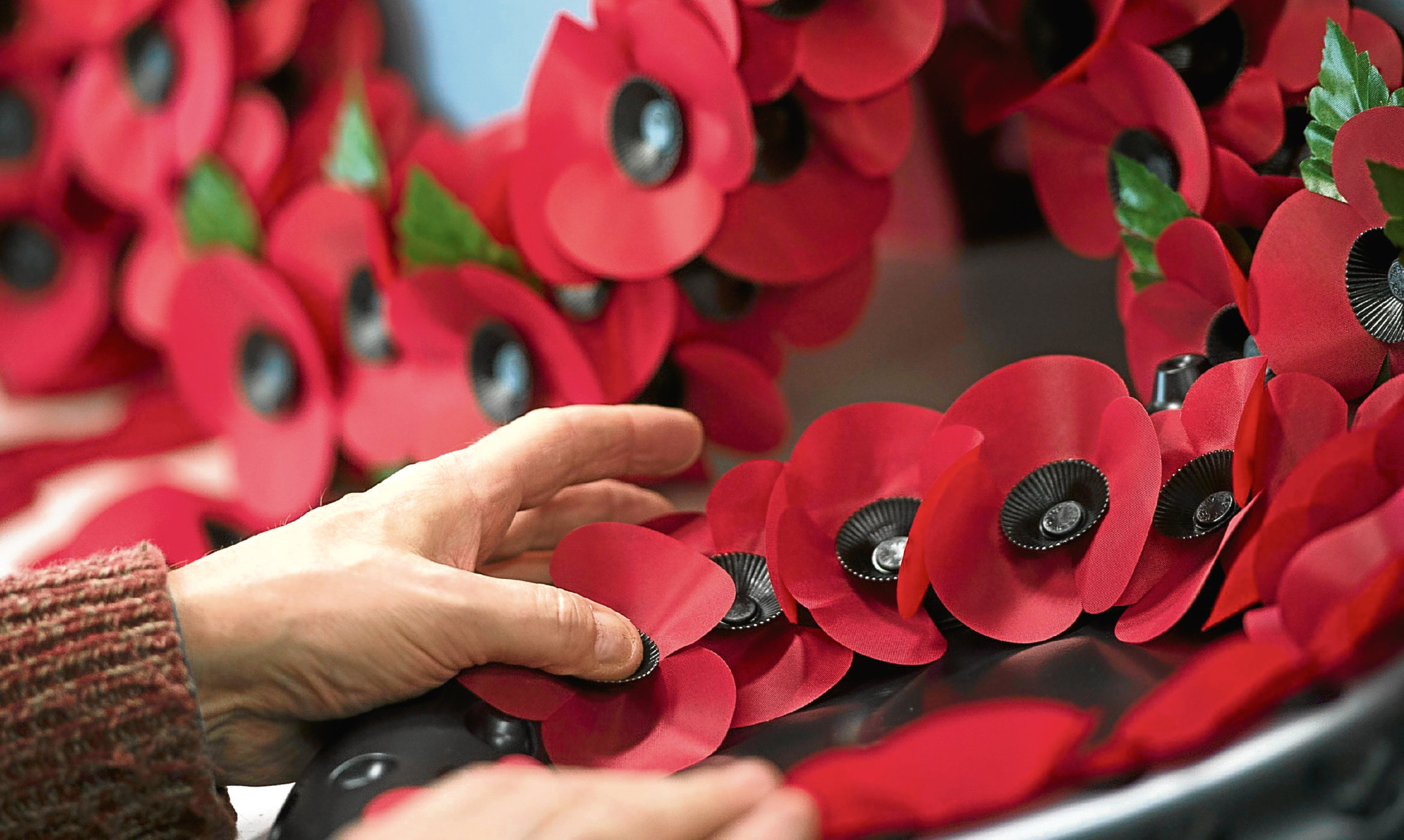The poppy is political, and long may it remain so. On the 11th of the 11th we appear to set politics aside to commemorate the war dead.
It is a stupid pretence – without the political significance, the fallen are diminished.
Whether the argument is being for or against the poppy, challenging Earl Haig’s legacy, disputing the modern trend of obligatory poppy-wearing on TV or the row about poppies at the upcoming Scotland-England football game, the disagreement matters.
It counts because men and women didn’t die in order to become some bland part of establishment ritual or national myth, but in the name of politics.
Let’s start at the beginning – the poppy is a weed. On the churned soil of Northern France, it was one of the few plants to flourish.
The flower became associated with the commemoration of the war dead from the poem In Flanders Field.
“In Flanders fields the poppies blow,
Between the crosses row on row.”
It was written by a Canadian military doctor and artillery commander Major John McCrae.
It was first adopted by the British Legion as a symbol for helping servicemen in 1920 and then by the Earl Haig fund a year later for his appeal to raise funds for those wounded in action.
Incompetence
Haig was an inept Field Marshall largely responsible for the massacre at Passchendale, where around a quarter of a million British troops died in horrific conditions for zero effect.
Haig is rightly held in contempt for his strategic incompetence and snobbish detachment from his troops.
This led to some finding the annual appeal tainted – the poppy was a symbol of how the deaths of hundreds of thousands had been co-opted by the aristocracy in a gesture of paternal regret.
It commemorated a man with no claim to glory.
To my generation, the poppy came back into fashion and the trend for it to be almost obligatory – a sign of the wearer’s considered humanity – took off.
The memory of Haig had withered in the popular imagination, and the poppy became a symbol not of Haig’s stupidity and regret but simply of the men and women who had died.
We now think of modern wars and the ghastly consequences – the concept of “veterans” is popular, with political parties doing what they can for “our lads” in what feels like a straight lift from American political language.
This doesn’t sit comfortably with everyone.
If we genuinely wish to care for those who are injured, or those families bereaved by a soldier’s death, then there is nothing to stop the state from doing so, and generously.
The contradiction in this vogue for respect of the uniform is that we still tolerate low wages and awful aftercare for soldiers.
Somehow the politics of sacrifice is that it is better when down with poor reward – a strange set-up indeed.
It adds to the sense that the use of remembrance as a measure of political correctness towards to the establishment is wrong.
It suggests people died so that others can play at being mournful.
Wrong
This is why the compulsory wearing of the poppy at the upcoming football match is wrong.
How we feel about the sacrifices that have been made in recent history changes over time.
What stays the same is the men who died at Passchendale were broadly terrified and lost their lives for no good reason at all.
The commemoration of the First World War involves reminding ourselves of the sheer folly of a ruling class unchecked by democratic accountability – it is a political act to remember them.
The same can not be said for those injured in the wars of the 21st Century – they died having signed up knowing the risk.
It is, however, a political matter that we ask young men to fight in our name, and then expect them to cope in civilian life with pitiful support.
Thus it is a political statement to call for greater support of ex-servicemen now.
Sacrifice
Anyone who fights and is injured for our country today should be guaranteed lifelong housing, medical support and care. It should not be up to charity to help our existing veterans.
McCrae’s poem ends:
“If ye break faith with us who die,
We shall not sleep, though poppies grow,
In Flanders fields.”
I take this to mean the poppies will keep growing, but it’s not them that matter, much as it is not the “crosses row on row”.
What matters is the sacrifice of the men and the “faith” we have in thinking that sacrifice worthy of remembrance.
Hundreds of thousands killed by the political decisions of the few – as much a war of class and poverty and accountability as against the enemy Germans.
I wear the poppy as a reminder governments can get you killed for no good reason.
You will have your own reasons – they are all valid and inevitably political.
